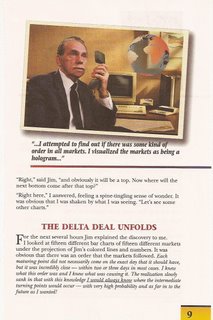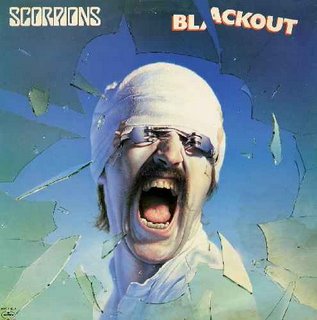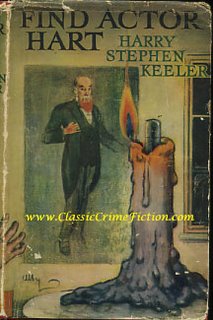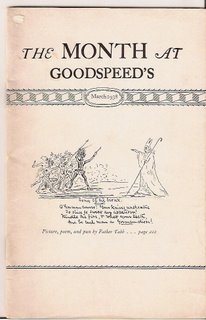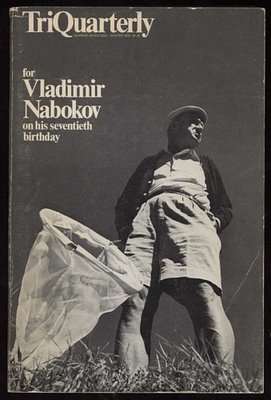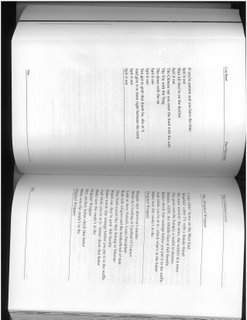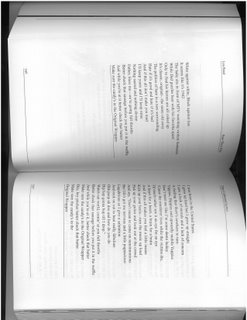Connections Week (#1): No Hieroics, Please


So you're living your life, eating Chinese food, wondering if there are any bills to pay, watching another installment of the first season of Gilmore Girls on DVD—then all of a sudden, you're thinking of a book you haven't thought of in years.
What gives?
Let's do this in an orderly fashion . . .
1.
Remember the high school in Heathers? It's named Westerberg, as in Paul Westerberg, because (it's said) star Winona Ryder was a huge Replacements fan.
2.
In the GG episode I just watched, Lorelai jokes that Rory has become the new "Heather" (after mean girl Paris's friends ditch P. and appear to befriend R.).
3.
Rory goes to Chilton Academy. As in . . . Alex Chilton?
4.
Googling "Gilmore Girls + Alex Chilton" isn't really turning up anything . . . but creator Amy Sherman-Palladino must be a fan—Big Star's "Thirteen" was on the soundtrack to the episode just prior to the one I watched.
5.
Paul Westerberg, of course, is himself a fan of Chilton—having written the song "Alex Chilton"! ("I never travel far/Without a little Big Star!" is pretty corny, but I think I know where he's coming from.)
6.
So I was wondering if this was sort of a multipronged allusion—to Alex Chilton qua Alex Chilton, but also to Heathers' alluding to Westerberg who alludes to Alex Chilton.
6.5
This is just a side note to a side note, but think about it: You have They Might Be Giants singing "Hi, We're the Replacements," and the Replacements singing "Children by the millions scream for Alex Chilton." Where is Alex Chilton's cover of "They Might Be Giants"?
7.
And now—to get back to the book I haven't thought of in years: For me the word/name "Chilton" evokes, more primally, a name in black . . . printed on the spine of a library book . . . from early high school days—"Chilton" is the name of the book's publisher.
8.
The title of the book was Hiero's Journey (1973), written by Sterling E. Lanier—a post-apocalyptic novel (somewhat along the lines of some things I've been looking at recently, e.g., the Tripods series).
8.5
In my memory, actually, the book is The Unforsaken Hiero (1983), Lanier's sequel—but Google tells me that that book was actually published by Del Rey.
9.
On Amazon (for a different Lanier book), someone wrote that:
Lanier is . . . known for . . . the prolific amount of novels he helped publish including the very well known "Dune" series when he worked at Chilton Publishers.
10.
I didn't realize Dune was also/originally published by Chilton! And that Lanier had a hand in getting it published! Even if Hiero's Journey is mostly forgotten, Lanier had a huge impact on science fiction (not to mention Kyle MacLachlan's career), if he was the man responsible for helping usher Dune into the world.
10.5
Side note: With global warming, An Inconvenient Truth, et al. looming in large in people's minds (this week's supposed to be horribly hot in New York), it's time for a spiffed-up reprint of Dune, with an introduction by Al Gore. (OK, maybe not.)
11.
Anyway—one other fact came swimming up out of the murk that is my head: I thought I had read, long ago, that Chilton was mainly a publisher of automotive books.
12.
Could this possibly be correct? Wikipedia says: "Chilton, a minor publishing house in Philadelphia, gave Herbert a $7,500 advance, and Dune was soon a critical success."
13.
So did a single outfit named Chilton publish both (a) books about cars and (b) seminal science fiction?
14.
I'm not 100% sure, but I think this might in fact be correct. Googling "Chilton + Philadelphia" brings us this. Chilton (apparently a still thriving automotive-manual publisher) was headquartered in West Philadelphia until 1972 or so (after Dune, and before or just around when Hiero's Journey appeared), after which it moved to the suburb of Radnor.
15.
I have no conclusion, just a rather tragic automotive association: A couple fan sites/message boards have mentioned the fact/rumor that Lanier was seriously injured in a car accident, and that Hiero's story will likely remain unfinished.
UPDATE: This website gives Radnor, PA, as the address for Chilton, publisher of Hiero's Journey.


